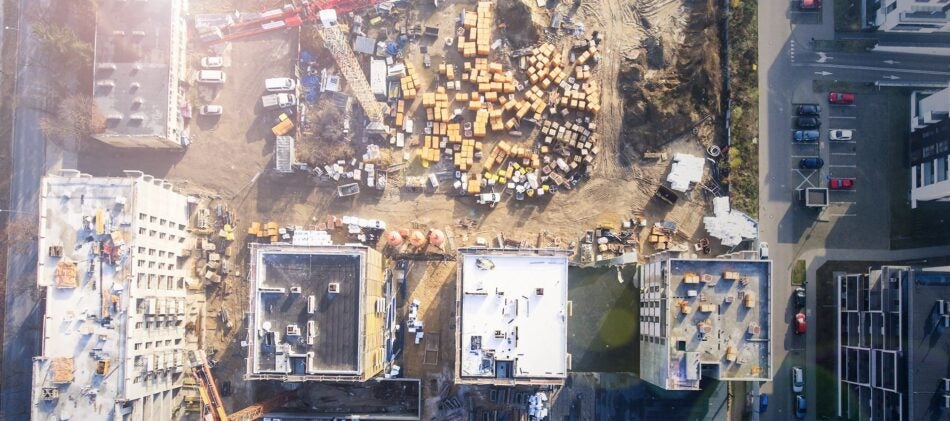The usage of drones in the construction industry has grown significantly in recent years. Drones are being leveraged for a number of purposes such as capturing aerial images, conducting land surveys, data collection for as-built modelling, safety inspections, surveillance and security, and much more.
New Transport Canada regulations for drone operations have been in effect since June 1, 2019. If your company operates drones at construction sites, it’s important to be thoroughly informed and in compliance with the new requirements to avoid heavy penalties. These regulations apply to all drones weighing between 250 kg and 25 kg.
Firstly, drone operations are now classified as either basic or advanced, rather than recreational or commercial.
For both categories, drone pilots must:
- register and mark the drone with its registration number
- pass an online exam and get a pilot certificate
- stay below 122 metres (400 feet) above ground level
- stay away from air traffic
- carry their pilot certificate and proof of registration during flights
You are considered to be conducting basic drone operations if you meet all three of the below conditions:
- you are flying your drone in uncontrolled airspace
- you are flying your drone over 30 metres (100 feet) horizontally from bystanders
- you are not flying your drone over bystanders
Drone operations falling outside of any one of the above conditions will be considered advanced and the pilot will be required to meet other conditions such as passing an exam and flight review. Many of construction site activities using drones can be classified as advanced. See the rules here. Additionally, drones must qualify under the Remotely Piloted Aircraft System Safety Assurance rating system for advanced operations. Check your make and model under the list.
It is also important to be aware of other applicable rules and regulations that apply. The Canadian Aviation Regulations specifies maximum altitude and horizontal distance from bystanders, pre-flight site survey procedures, minimum weather conditions and recordkeeping requirements. Those planning to operate outside these rules or fly drones weighing more than 25 kg will require a Special Flight Operations Certificate from Transport Canada. An SFOC will also be required for:
- carrying dangerous or hazardous payloads
- flying at a special aviation event or an advertised event
- flying more than five drones at the same time
Fines that can be imposed on corporations for incompliance include:
- up to $5,000 for flying without a drone pilot certificate
- up to $5,000 for flying unregistered or unmarked drones
- up to $5,000 for flying where you are not allowed
- up to $15,000 for putting aircraft and people at risk
It is recommended that any drone operators thoroughly review the Government of Canada’s webpage on drone safety for a complete understanding of the rules.
Contact an Acera Insurance advisor for information and resources on insurance and risk management.

